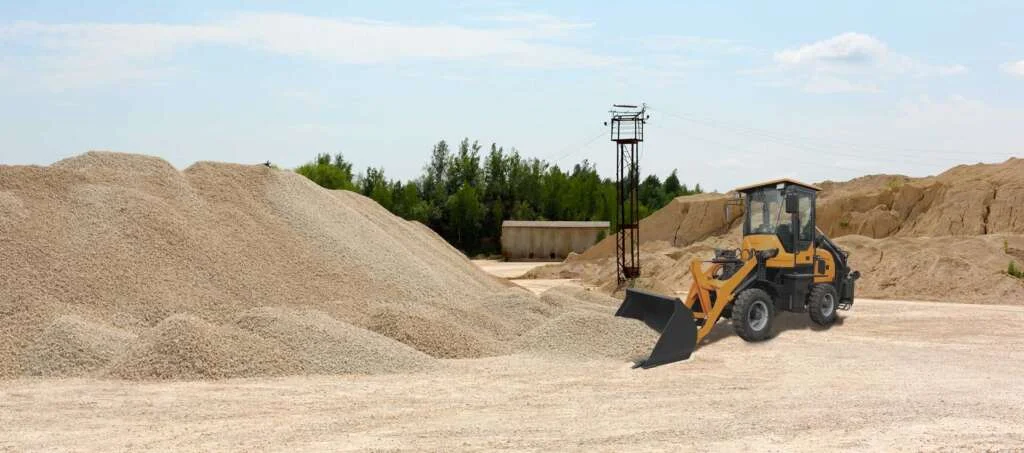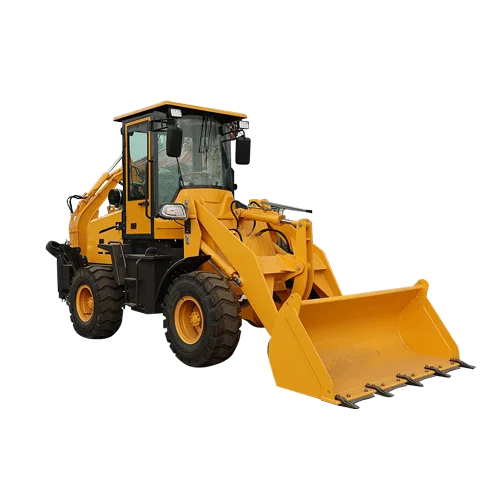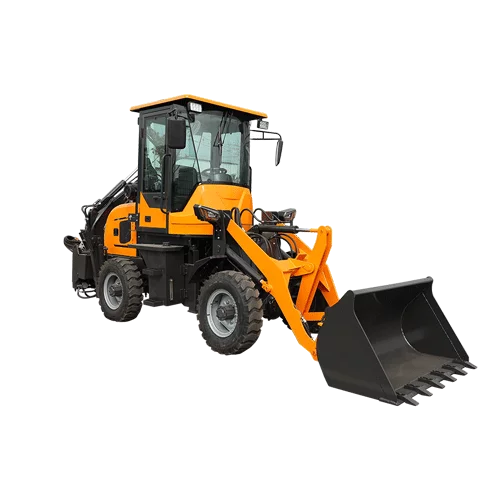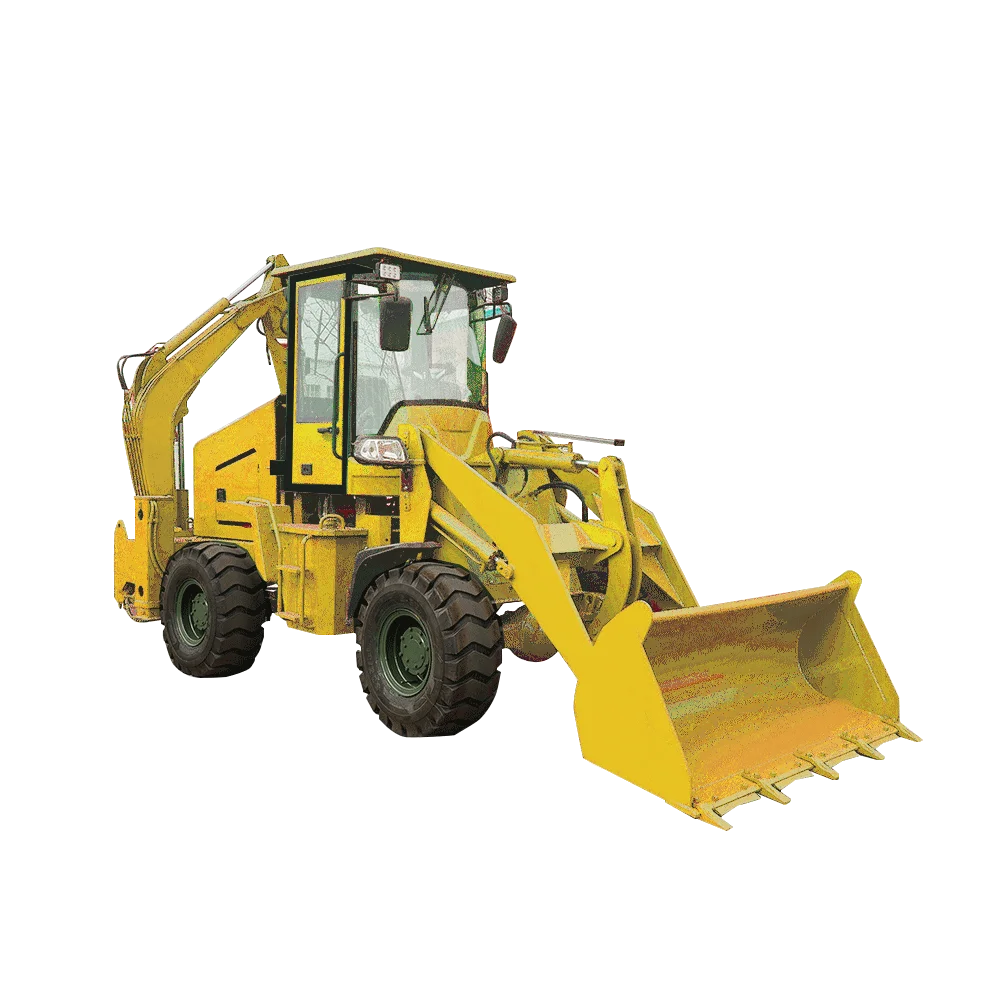Bienvenue sur mon blog !
Avant de plonger dans le contenu, j'aimerais que vous me rejoigniez sur mes plateformes de médias sociaux où je partage plus d'informations, je m'engage avec la communauté et je publie des mises à jour. Voici comment vous pouvez vous connecter avec moi :
Facebook:https://www.facebook.com/profile.php?id=100087112105480
LinkedIn:https://www.linkedin.com/showcase/99327366/admin/dashboard/
Maintenant, commençons notre voyage ensemble. J'espère que vous trouverez le contenu de ce site perspicace, intéressant et utile.
Table des matières
Introduction

Lorsqu'il s'agit de travaux de construction et de terrassement lourds, deux des machines les plus couramment utilisées sont les pelles rétrocaveuses et les chargeurs frontaux. Toutes deux jouent un rôle essentiel dans la construction, l'excavation et la manutention des matériaux, mais le choix de la bonne machine peut s'avérer difficile. Le choix entre une pelleteuse et un chargeur frontal dépend des tâches spécifiques, du terrain et des exigences du projet.
Dans ce guide, nous examinerons les différences entre une pelleteuse et un chargeur frontal, leurs applications, leurs avantages et leurs limites afin de vous aider à prendre une décision éclairée.
Comprendre les pelles rétrocaveuses et les chargeurs frontaux
Qu'est-ce qu'une pelleteuse ?
Une pelleteuse est un équipement lourd composé d'un godet de creusement fixé à un bras articulé en deux parties (ou flèche) à l'arrière, et d'un godet chargeur monté à l'avant. Cette double fonctionnalité rend les pelles rétrocaveuses très polyvalentes en matière d'excavation, de creusement de tranchées et de manutention de matériaux.
Qu'est-ce qu'un chargeur frontal ?
Une chargeuse frontale (également appelée chargeuse sur pneus ou chargeuse frontale) est une machine lourde équipée d'un grand godet avant utilisé pour ramasser, soulever et déplacer des matériaux tels que de la terre, du gravier et des débris. Contrairement à une pelleteuse, une chargeuse frontale n'a pas de bras de creusement à l'arrière, ce qui la rend plus spécialisée dans les tâches de chargement et de transport.
Pelleteuse et chargeur frontal : Principales différences
Conception et structure
- Pelleteuse : Elle est dotée d'une double fonction, avec un bras d'excavation à l'arrière et un chargeur à l'avant.
- Chargeur frontal : Principalement conçue pour le chargement et le transport de matériaux avec un godet plus large.
Fonctions principales
- Pelleteuse : Utilisée pour creuser des tranchées, l'excavation, la démolition et le levage de matériaux.
- Chargeur frontal : Idéal pour déplacer et charger des matériaux en vrac tels que le sable, le gravier et les débris de construction.
Maniabilité et polyvalence
- Rétrocaveuse : Plus polyvalente en raison de sa capacité d'utilisation double, mais peut être moins maniable dans les espaces restreints.
- Chargeur frontal : Offre une meilleure maniabilité pour les opérations de chargement, mais ne permet pas de creuser des tranchées.
Applications
- Pelleteuse : Courante dans la construction de routes, l'agriculture et l'installation de services publics.
- Chargeur frontal : Utilisée principalement dans l'exploitation minière, la construction à grande échelle et le transport de matériaux.
Compétences requises pour l'opérateur
- Pelleteuse : Nécessite une formation avancée en raison de la complexité des fonctions de creusement et de chargement.
- Chargeur frontal : Plus facile à utiliser, l'accent étant mis sur le ramassage et le levage plutôt que sur le creusement.
Pelleteuse ou chargeur frontal : Tableau comparatif


| Fonctionnalité | Tractopelle | Chargeur frontal |
|---|---|---|
| Objectif principal | Creusement et chargement | Chargement et transport |
| Conception | Bras de fouille à l'arrière, seau à l'avant | Grand godet avant, pas de bras de creusement arrière |
| Meilleur pour | Creusement de tranchées, excavation et travaux de construction de petite et moyenne envergure | Déplacer, soulever et transporter des matériaux lourds |
| Manœuvrabilité | Modéré (en fonction du terrain) | Élevée (surtout dans les zones ouvertes) |
| Formation requise | Plus complexe à utiliser | Plus facile à utiliser |
| Utilisations courantes | Construction, agriculture et travaux routiers | Exploitation minière, démolition et manutention |
| Polyvalence | Élevée - peut remplir plusieurs fonctions | Limité au levage et au chargement |
Quand choisir une pelleteuse ou un chargeur frontal ?
Choisir une pelleteuse si :
- Votre projet implique des travaux d'excavation ou de creusement de tranchées
- Vous avez besoin d'une machine multifonctionnelle pour différentes tâches
- Le chantier nécessite des capacités de creusement et de chargement
- Vous travaillez dans l'agriculture, la construction ou l'entretien des routes.
Choisissez un chargeur frontal si :
- Vous devez principalement déplacer et transporter des matériaux
- Vous travaillez dans l'industrie minière, la construction à grande échelle ou la manutention de matériaux en vrac.
- Vous avez besoin d'une plus grande maniabilité dans les espaces ouverts
- Vous avez besoin d'une plus grande capacité de chargement pour les matériaux lourds
Avantages et limites des pelles rétrocaveuses et des chargeurs frontaux

Avantages des pelles rétrocaveuses
- Très polyvalent, capable de creuser, de charger et de manipuler des matériaux
- Grâce à sa taille compacte, il convient aux petits chantiers et aux projets urbains.
- Élimine la nécessité d'avoir des excavateurs et des chargeurs séparés
Limites des pelles rétrocaveuses
- Capacité de chargement inférieure à celle des chargeurs frontaux
- Fonctionnement plus complexe, nécessitant des opérateurs qualifiés
- Plus lent que les chargeurs spécialisés lors du déplacement de grands volumes de matériaux
Avantages des chargeurs frontaux
- Grande efficacité dans le déplacement des matériaux
- Plus grande capacité de godet pour la manutention de produits en vrac
- Meilleure traction et maniabilité dans les espaces de travail ouverts
Limites des chargeurs frontaux
- Fonctionnalité limitée, car il ne peut pas creuser de tranchées ou d'excavations
- Moins efficace dans les espaces confinés en raison de sa taille
- Nécessite un équipement supplémentaire pour les travaux d'excavation
Conclusion
Pour choisir entre une pelleteuse et un chargeur frontal, il est essentiel d'évaluer les exigences de votre projet, les conditions du terrain et votre budget. Une pelleteuse est le meilleur choix pour les travaux nécessitant à la fois des capacités de creusement et de chargement, tandis qu'un chargeur frontal excelle dans le déplacement et la manutention de matériaux en vrac.
Ces deux machines sont essentielles dans les opérations de construction et de terrassement, et le choix de la bonne machine peut avoir un impact significatif sur la productivité et l'efficacité sur le chantier. Pour plus d'informations, n'hésitez pas à contacter nous contacter.
FAQ
Une pelleteuse peut-elle remplacer un chargeur frontal ?
Une pelleteuse peut effectuer certaines tâches de chargement, mais elle n'a pas la même efficacité ni la même capacité de godet qu'un chargeur frontal. Si vous devez déplacer de gros volumes de matériaux, un chargeur frontal est la meilleure option.
Un chargeur frontal est-il plus facile à utiliser qu'une pelleteuse ?
Oui, un chargeur frontal est généralement plus facile à utiliser parce qu'il ne s'agit que de creuser et de soulever. Une pelleteuse nécessite plus de compétences pour être utilisée efficacement à la fois pour creuser et pour charger.
Quelle est la meilleure machine pour l'agriculture ?
Une pelleteuse est souvent préférée pour une utilisation agricole car elle peut creuser, creuser des tranchées et déplacer des matériaux. Toutefois, un chargeur frontal est utile pour le transport de matériaux à grande échelle dans les exploitations agricoles.
Un chargeur frontal peut-il creuser comme une pelleteuse ?
Non, un chargeur frontal n'est pas conçu pour creuser. Il peut pousser des matériaux, mais il ne peut pas creuser des tranchées ou des excavations comme une pelleteuse.
Quelles sont les industries qui utilisent le plus les pelles rétrocaveuses et les chargeurs frontaux ?
Les pelles rétrocaveuses sont couramment utilisées dans la construction, les travaux publics et l'agriculture, tandis que les chargeurs frontaux sont largement utilisés dans les secteurs de l'exploitation minière, de la démolition et du transport de matériaux.
Comment choisir entre une pelleteuse et un chargeur frontal pour mon projet ?
Considérez la tâche principale : si vous avez besoin de creuser et d'excaver, optez pour une pelleteuse. Si vous vous concentrez sur le transport et le chargement de matériaux, un chargeur frontal est le meilleur choix.
